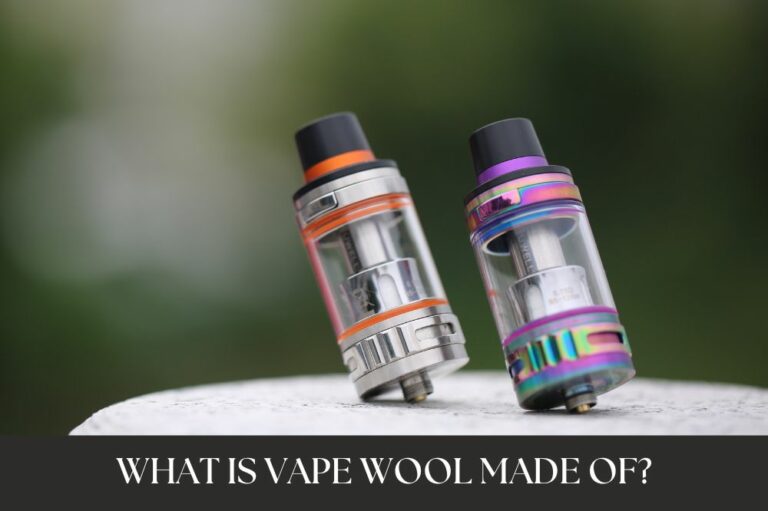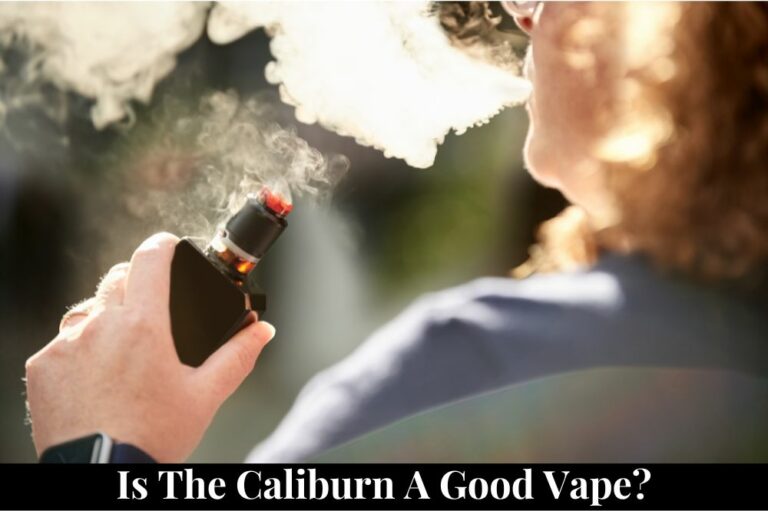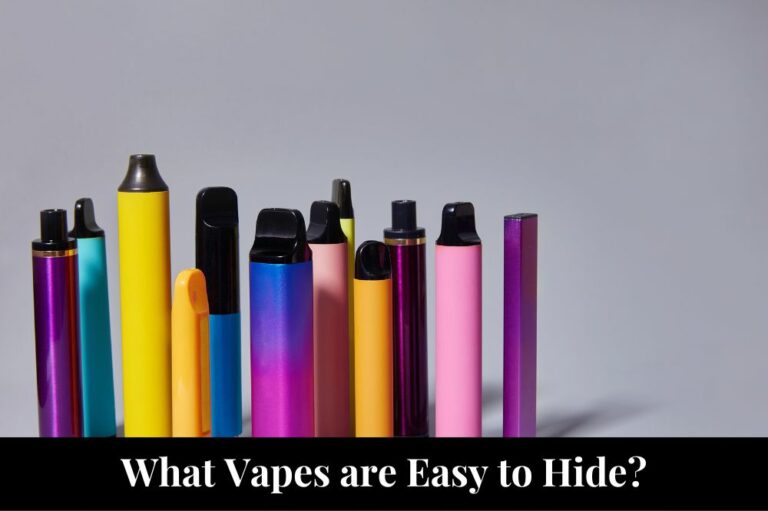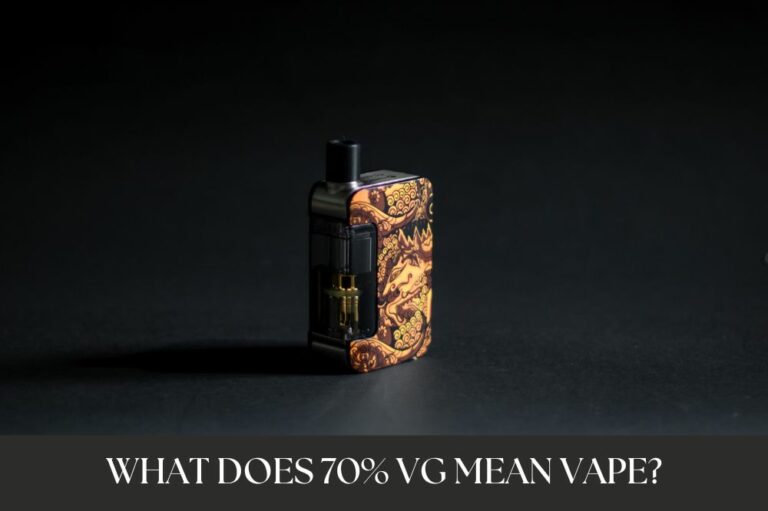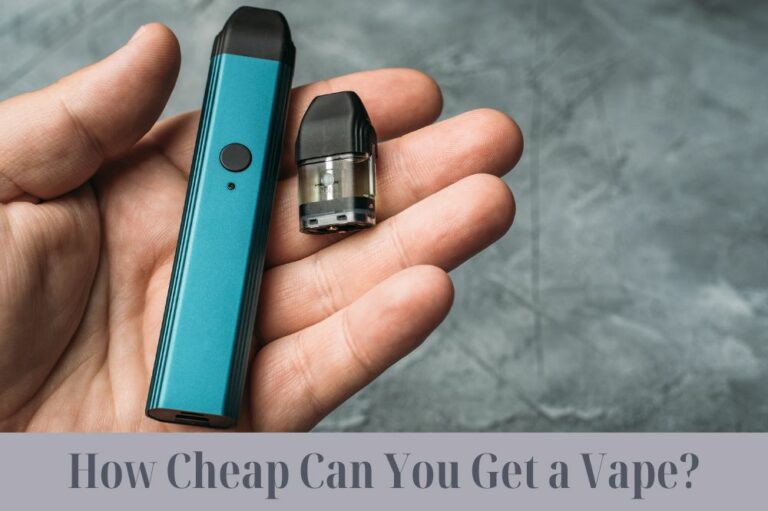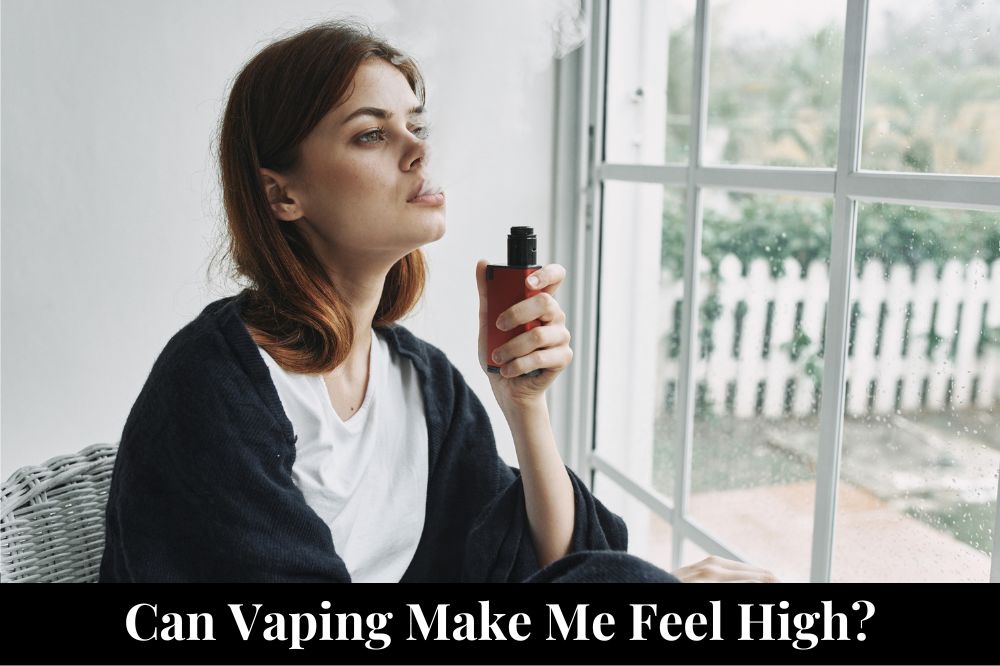
If you’re new to vaping, you may be wondering if it can make you feel high. The answer is not a simple yes or no, as it depends on what you’re vaping and how much you’re using. While vaping nicotine-based e-liquids won’t get you high, vaping cannabis or CBD oil can produce a high or a feeling of relaxation.
Vaping cannabis or CBD oil involves heating the substance, which releases its active compounds into a vapor that you inhale. THC, the psychoactive compound in cannabis, can produce a high when vaped in large enough quantities. CBD, on the other hand, is non-psychoactive and can produce a feeling of relaxation without the high. It’s important to note that the effects of vaping cannabis or CBD oil can vary depending on the strain and potency of the substance.
Understanding Vaping
If you’re new to vaping, it’s important to understand what it is and how it works. Vaping is the act of inhaling and exhaling an aerosol, often referred to as vapor, produced by an e-cigarette or similar device. The process involves heating a liquid, also known as e-juice or vape juice, that typically contains nicotine, flavorings, and other chemicals.
While vaping is often marketed as a safer alternative to smoking, it is not without its risks. The chemicals found in e-juice can be harmful, and there is evidence to suggest that vaping can cause lung damage and addiction. In fact, according to Johns Hopkins Medicine, vaping is less harmful than smoking, but it’s still not safe.
One of the most significant risks associated with vaping is addiction. The nicotine found in e-juice is highly addictive, and it can be difficult to quit once you start. Additionally, some e-juices may contain higher levels of nicotine than traditional cigarettes, making them even more addictive.
Another risk associated with vaping is lung damage. According to Cleveland Clinic, vaping can make you more likely to get asthma and other lung conditions. It can also make your existing asthma worse. Some chemicals used in e-juice, such as diacetyl, can cause bronchiolitis obliterans, also known as “popcorn lung.” This condition causes permanent scarring in your lungs, which can lead to difficulty breathing and other respiratory problems.
In summary, while vaping may seem like a harmless activity, it is not without its risks. It’s essential to understand the potential dangers associated with vaping before deciding whether or not to try it. If you’re already vaping and are concerned about the risks, consider talking to a healthcare professional or seeking help to quit.
SPIRITBAR Katana BP10000
- Slender, leather-textured body reminiscent of a katana handle for an authentic samurai feel
- Unique samurai-inspired e-liquid flavor - fruity yet not too sweet, with a luxurious, elegant aroma
- Powerful 650mAh rechargeable battery for extended vaping time
- Large 18ml e-liquid capacity and 10,000 puff capacity
- Advanced mesh coil and e-liquid & power display screens for optimal vaping experience
The special juice captures the essence of the samurai spirit with its rich, smoothly pulsating flavor that brings new satisfaction with every puff. The device's slender, leather-textured design evokes the grip of a samurai's katana, making this product a perfect choice for beginner vapors.
The Connection Between Vaping and Feeling High
When it comes to vaping, the answer to whether or not it can make you feel high is a bit complicated. While vaping itself does not make you feel high, the substances you vape can have an impact on your mental state.
If you vape nicotine, you may experience a buzz or a rush of energy, but this is not the same as feeling high. Nicotine is a stimulant, and it can increase your heart rate and blood pressure, which can make you feel more alert and focused. However, this effect is typically short-lived and may not be noticeable for everyone.
On the other hand, if you vape marijuana or other substances that contain THC, you may feel high. THC is the psychoactive compound in marijuana that produces the feeling of being “high.” When you vape THC, it enters your bloodstream quickly and can produce a more intense high than smoking marijuana.
It’s important to note that vaping THC can be dangerous, especially if you’re using black market or homemade products. These products may contain harmful additives or contaminants that can cause serious health problems. Additionally, using THC can impair your judgment and coordination, which can be dangerous if you’re driving or operating machinery.
SPIRITBAR Jack’s Flask 9000 Puffs
- Stylish pirate flask-shaped body providing an exciting vaping experience
- Delivering up to 9000 puffs per device
- 20ml e-liquid capacity with 50mg nicotine strength for satisfying throat hit
- Specialized pirate-themed e-juice flavors for rich, swirling taste
- Premium mesh coil optimizes flavor profile for maximum vaping enjoyment
This disposable vape captures the daring spirit of the high seas with its flask styling and signature pirate e-juice flavors. The extraordinary battery life provides 9000 indulgent puffs for extended vaping pleasure. Live boldly and freely with the Jack's Flask - a legendary vaping experience fit for a pirate's adventures.
In conclusion, vaping itself does not make you feel high, but the substances you vape can have an impact on your mental state. If you choose to vape marijuana or other substances, it’s important to use caution and be aware of the potential risks and side effects.
Substances Used in Vaping
When it comes to vaping, there are various substances that can be used. Some of the most common ones include nicotine, CBD, and THC. Here’s what you need to know about each one:
Nicotine
Nicotine is a chemical that is naturally found in tobacco plants. It is highly addictive and is often used in e-cigarettes as it can provide a similar sensation to smoking traditional cigarettes. Vaping nicotine can cause an increase in heart rate, blood pressure, and can affect your mood. It can also lead to addiction, which can be difficult to overcome.
CBD
CBD, or cannabidiol, is a non-psychoactive compound found in the cannabis plant. It is often used for its potential therapeutic benefits, such as reducing anxiety and inflammation. Vaping CBD can provide a quick and efficient way to experience its effects. However, it’s important to note that not all CBD products are created equal, and some may contain harmful additives or contaminants.
THC
THC, or tetrahydrocannabinol, is the psychoactive compound found in cannabis that can cause a “high” sensation. Vaping THC can provide a quick and potent way to experience its effects. However, it’s important to note that THC can have negative effects on your mental health, such as increasing anxiety and paranoia. Additionally, vaping THC can be dangerous if the product is contaminated with harmful substances.
Overall, it’s important to be aware of the substances that you are vaping and their potential effects on your health. Always make sure to use reputable products and follow proper safety guidelines.
Effects of Vaping on the Brain
When you inhale the vapor from an e-cigarette, the nicotine enters your bloodstream and travels to your brain. Nicotine is a highly addictive substance that can affect your brain in several ways.
One of the effects of nicotine on the brain is the release of dopamine, a neurotransmitter that is associated with pleasure and reward. This release of dopamine can create a feeling of euphoria, which is why some people describe feeling “high” when they vape.
However, the effects of nicotine on the brain are not always positive. Nicotine can also cause a decrease in the levels of other neurotransmitters, such as serotonin and norepinephrine, which can lead to feelings of anxiety and depression.
In addition to the effects of nicotine, the flavorings used in e-cigarettes can also have an impact on the brain. A study published in the journal eLife in 2022 found that certain flavors, such as cinnamon and vanilla, can increase the release of dopamine in the brain, while others, such as menthol, can decrease it.
SPIRITBAR Katana BP10000
- Slender, leather-textured body reminiscent of a katana handle for an authentic samurai feel
- Unique samurai-inspired e-liquid flavor - fruity yet not too sweet, with a luxurious, elegant aroma
- Powerful 650mAh rechargeable battery for extended vaping time
- Large 18ml e-liquid capacity and 10,000 puff capacity
- Advanced mesh coil and e-liquid & power display screens for optimal vaping experience
The special juice captures the essence of the samurai spirit with its rich, smoothly pulsating flavor that brings new satisfaction with every puff. The device's slender, leather-textured design evokes the grip of a samurai's katana, making this product a perfect choice for beginner vapors.
Furthermore, research from the University of California San Diego School of Medicine suggests that vaping can alter the inflammatory state of the brain, which can have negative effects on brain function and increase the risk of neurological disorders.
Overall, the effects of vaping on the brain are complex and can vary depending on several factors, including the type of e-cigarette, the flavorings used, and the frequency and duration of use. It is important to be aware of the potential risks associated with vaping and to make informed decisions about your health.
Short-Term and Long-Term Effects
Vaping is a relatively new phenomenon, and research is still ongoing regarding its effects on the body. However, some short-term effects of vaping are well-documented.
One of the most immediate effects of vaping is the feeling of being high. This is because many vaping products contain THC, the active ingredient in marijuana. THC can cause feelings of euphoria, relaxation, and altered perception of time and space.
However, it’s important to note that not all vaping products contain THC, and not all vaping products that do contain THC will make you feel high. Additionally, some products may contain other substances that can cause a high, such as nicotine or synthetic cannabinoids.
In the long-term, the effects of vaping are less clear. Some studies suggest that vaping can cause damage to the lungs and increase the risk of respiratory infections. Additionally, there is concern that vaping may be addictive and could lead to the use of other substances.
It’s important to be aware of the potential risks associated with vaping and to make informed decisions about whether or not to use vaping products. If you do choose to vape, it’s important to use products that are reputable and to avoid using products that contain unknown or untested substances.
Factors Influencing the Intensity of the High
When vaping, the intensity of the high can vary depending on several factors. Here are some of the factors that can influence the intensity of the high:
1. Type of Vape
The type of vape you use can influence the intensity of the high. For example, some vapes are designed to produce more vapor than others, which can lead to a more intense high. Additionally, some vapes are designed to produce a more potent vapor, which can also lead to a stronger high.
2. Nicotine Content
The nicotine content of your vape can also influence the intensity of the high. Nicotine is a stimulant, which means it can produce a more intense high when combined with other substances. If you are looking for a more intense high, you may want to consider using a vape with a higher nicotine content.
3. THC Content
If you are using a vape that contains THC, the amount of THC in your vape can also influence the intensity of the high. THC is the psychoactive compound in cannabis that produces the “high” feeling. The higher the THC content in your vape, the more intense the high will be.
4. Inhalation Technique
The way you inhale when vaping can also influence the intensity of the high. If you take longer and deeper puffs, you may experience a more intense high. Additionally, holding the vapor in your lungs for a longer period of time can also lead to a stronger high.
5. Tolerance
Your personal tolerance level can also influence the intensity of the high. If you are a regular vaper, you may need to use a higher concentration of nicotine or THC to achieve the same level of high as someone who is new to vaping.
Overall, there are several factors that can influence the intensity of the high when vaping. By understanding these factors, you can adjust your vaping habits to achieve the desired level of intensity.
Vaping vs Smoking
When it comes to consuming nicotine or other substances, there are two main methods: vaping and smoking. While both methods involve inhaling something into your lungs, there are some key differences between the two.
Nicotine Delivery
Both vaping and smoking deliver nicotine into your system, but the way it is delivered is different. Smoking involves burning tobacco, which creates smoke that is then inhaled into your lungs. This smoke contains a variety of harmful chemicals, including tar, carbon monoxide, and formaldehyde.
Vaping, on the other hand, involves heating a liquid (often called e-juice or vape juice) to create a vapor that is then inhaled. This liquid typically contains nicotine, flavorings, and other chemicals. While vaping is generally considered to be less harmful than smoking, it is still not completely safe.
Health Risks
Smoking is well-known to be a major health risk, with a variety of negative health effects. These can include lung cancer, heart disease, stroke, and respiratory infections. Smoking can also cause damage to your teeth and gums, and is associated with premature aging.
While vaping is generally considered to be less harmful than smoking, it still poses some health risks. One of the biggest concerns with vaping is the potential for lung damage. While the long-term effects of vaping are not yet fully understood, there have been cases of serious lung illness associated with vaping.
Addiction
Both smoking and vaping can be addictive due to the nicotine content. Nicotine is a highly addictive substance that can lead to physical dependence and withdrawal symptoms when you try to quit. While vaping may be less addictive than smoking, it can still be difficult to quit if you become dependent on nicotine.
Overall, while vaping may be considered a safer alternative to smoking, it is not completely without risk. If you are considering vaping, it is important to understand the potential health risks and addiction risks associated with the practice.



